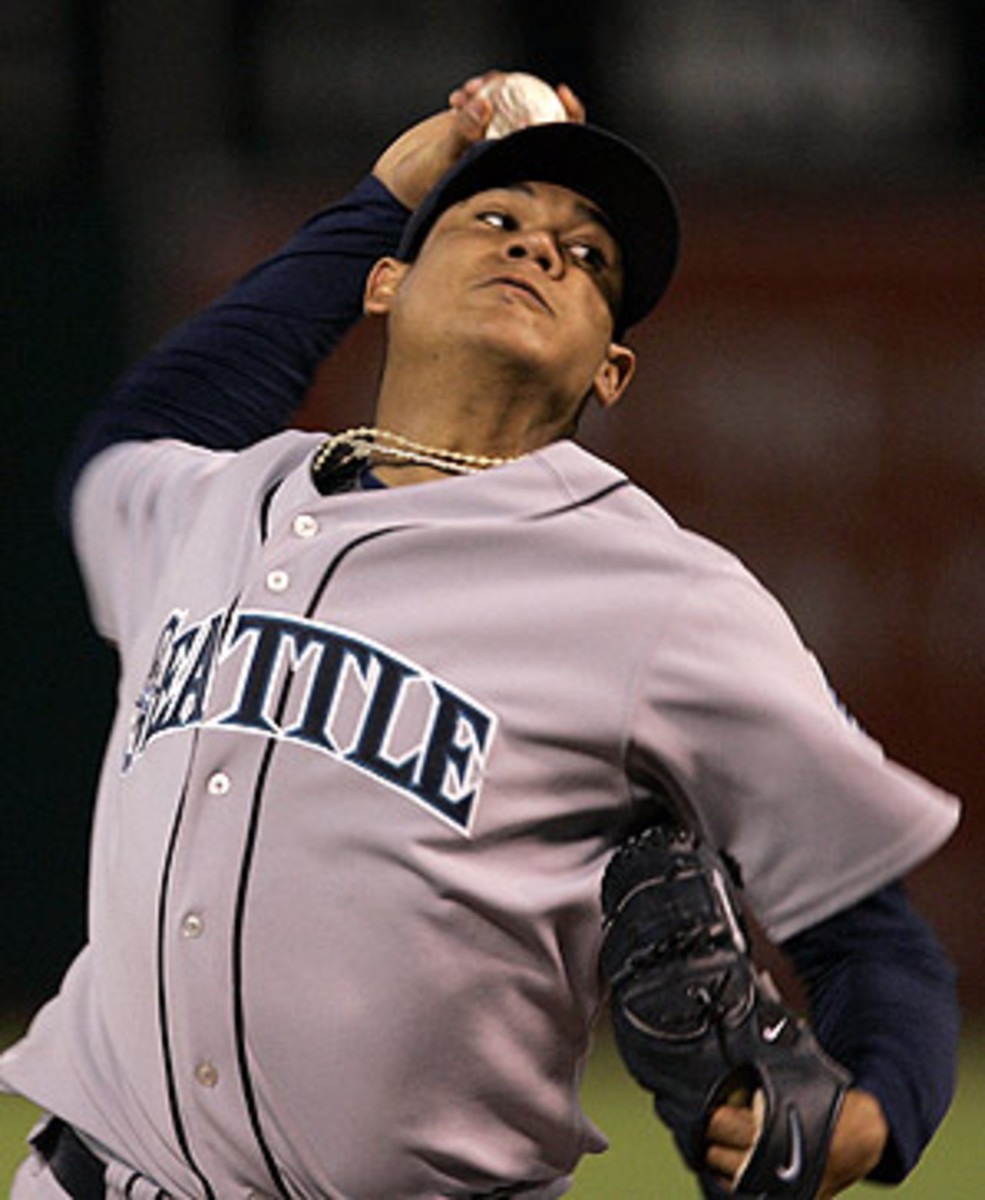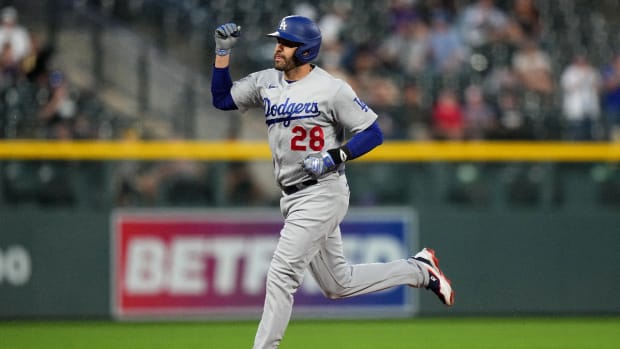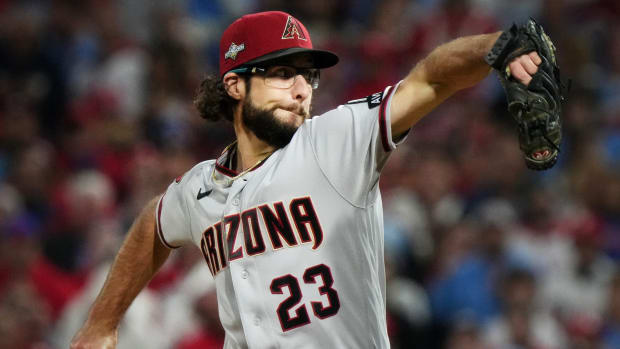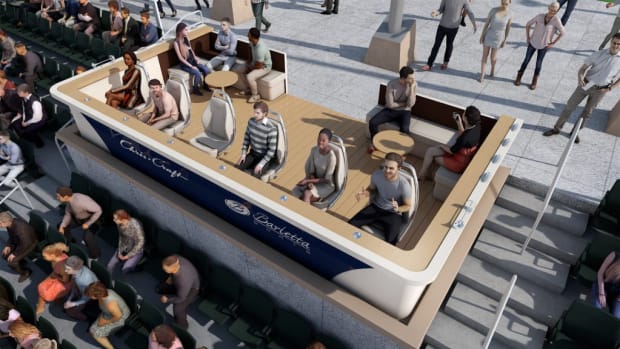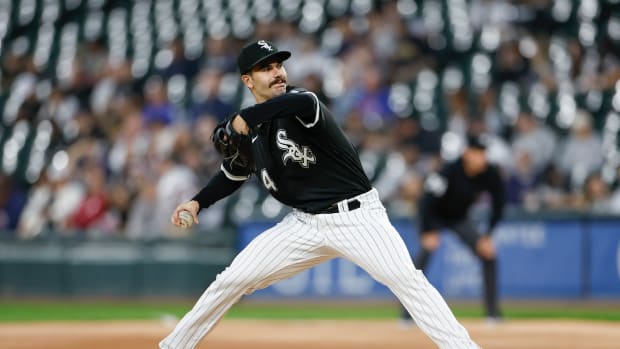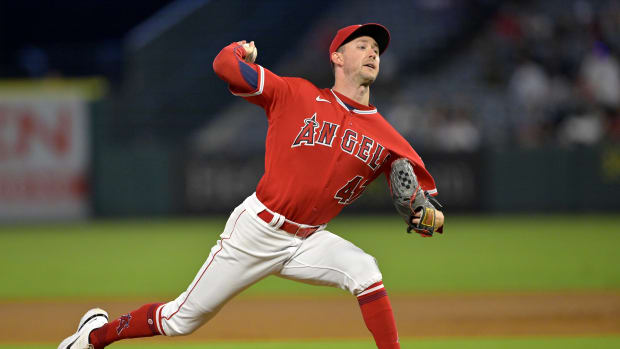GM for a Day: Mariners
As a run-up to the winter meetings, which begin on Monday in Las Vegas, I'm resurrecting a feature I've done sporadically in the past, "GM For a Day." It is exactly what it sounds like: I take over a team and outline what I think needs to be done. (Note that no one has ever hired me based on these pieces.) With 30 teams and probably a total of five columns before next Monday, I won't get to everyone, but expect two or three more of these in the days ahead.
Today I want to take a run at the Mariners, a somewhat more difficult project than the Dodgers. A year ago the Mariners built up their 2008 roster at the expense of future seasons, and over the objections of performance analysts. The Mariners were fooled by their 2007 success, when a strong won-lost record had been built on a bullpen whose run prevention didn't quite match the underlying skill sets and which got a bit lucky beyond even that. In the same way that the 2008 Mariners weren't as good as the 2007 ones would have led you to believe, the 2009 Mariners are better than the '08 version indicates. The '08 Mariners lost a ton of value to the DL, as J.J. Putz and Erik Bedard, good for 17.0 WARP in 2007, produced 6.7. Those two guys repeating their 2007 seasons still wouldn't have put the team in contention, but it would have lessened the perception that it was a disaster going nowhere.
Even so, I am much more optimistic about next year's Mariners, in the short term, than I was about last year's. Last year's Mariners were going to be terrible offensively, and not have nearly enough pitching or defense to make up for it. The '09 version is going to have good, and possibly excellent, run prevention, and has enough time and money to possibly put a representative offense on the field. The AL West could very well be won with 87 wins next season, and I'm not convinced that the 2009 Mariners couldn't get there, and without making the kind of decisions they did a year ago.
The Mariners have Felix Hernandez, Bedard, Brandon Morrow, RyanRowland-Smith, Carlos Silva and Jarrod Washburn. Forget that the last two are overpaid fodder; how many AL rotations would you trade, straight up, for the top four guys? Eleven? Twelve? I'd certainly take the Red Sox, and probably the Rays just because of David Price. The Twins? It's close; they don't have anyone with the upside of Hernandez or Morrow. I'd take the Mariners' rotation over the Angels, the Yankees, the Blue Jays, the White Sox... this has the potential to be a fantastic set of pitchers. Bedard has to return from his shoulder issues, of course, and both Rowland-Smith and Morrow have to continue their transition back to starting, which is where the innings-eating qualities of Silva and Washburn may actually be a benefit. Hernandez, Bedard and Morrow all had Stuff scores of at least 19 last year. Rowland-Smith's mark was -1, and he wasn't great as a starter (35/23 K/BB in 63 1/3 innings, nine home runs allowed), but the skills he showed in the transition should lead to better performance in '09.
The 2009 Seattle Mariners will have one of the five best rotations in the American League, and if you start there, you can get to a lot of places. So if this were my team, I would do everything I could to back up that rotation, with a couple of developing arms and a couple of ball-in-play guys, and with the best defense possible. This is where the Mariners have been going backward; their defense, as measured by Park-Adjusted Defensive Efficiency, slipped to 26th in MLB last year, 27th the year prior, and has been going backward since the early years of the decade, when they had some of the best defensive teams in franchise history in 2001 and 2003.
As much as Raul Ibanez is praised as a clutch player, his diminished range is a big part of Seattle's declining defensive performance of late. Yuniesky Betancourt hasn't followed up on his excellent rookie season, and Jose Lopez has struggled. Ichiro Suzuki, in terrific shape, is nevertheless 34, and 34-year-olds need to move from center field to a corner spot just as he did at midseason. To help the Mariners, I would try to have as many above-average defensive players on the field -- more specifically, in the outfield -- as is reasonable. Fixing the offense will have to happen, but with enough run prevention -- generally cheaper to purchase or acquire -- you can get away with an average or slightly-below offense, and there are a lot of cheap bats out there this year.
Ibanez was simply terrible, with a -18 in John Dewan's Plus/Minus system last year, and -25 in 2007. That's plays, which for outfielders translates to singles, as well as doubles and some triples. Upgrade from that to an average left fielder and you save 10 to 15 runs. Upgrade to a plus outfielder and save 20 to 30 runs. Two candidates are Eric Byrnes, who does play very good defense and who may be available cheaply from the Diamondbacks, and the Nationals' Willie Harris, who will be hard-pressed to play in 140 games again with Josh Willingham added to the fold in Washington. Harris was in the Plus/Minus top 10 for left fielders in both '07 and '08, while Byrnes was the best in the game in '07 before missing much of '08 to injury.
In center field the Mariners could try to acquire a glove man without a role, such as the Braves' Josh Anderson or the Pirates' Nyjer Morgan. They could also run Jeremy Reed out there for one last time; Reed is average to average-plus defensively, and is the rare internal solution who might provide their lineup some OBP. Put the emphasis on might here; Reed has simply never built on the promise of 2003 and 2004, and in an extended trial last season he posted a .314 OBP with 18 walks in 312 PA. Something else to watch is that the Mariners have added two minor league free agents, Steve Moss and Mel Stocker, neither of whom is a prospect but both of whom are defense and speed players. Given how open this situation is, either could win the job. Kevin Goldstein suggests Clay Timpner and Drew Macias as possibilities, if the Mariners want to maximize run prevention in a center fielder.
The answer is similar in the infield, where Adrian Beltre is excellent defensively and entering the final year of his contract. You can look to trade him at midseason, but unless someone overwhelms you there's not much need to do so this winter. Again, the AL West simply isn't going to be that great next year, the last year of the pre-Rangers Era. Give yourself a chance to win the game's smallest division by keeping one of your best players. Young veterans Betancourt and Lopez have been a huge part of the team's problem with OBP, walking a combined 39 times on their own power last year in more than 1,200 plate appearances. Both have raw skills that have not translated to performance; at 27 and 25, respectively, it's time for the Mariners to find out if this is a middle infield you can win a championship with. At the least, you want to ramp up their trade value as the Carlos Truinfel Era approaches.
The Mariners have to get better production at first base and DH, which were disasters of biblical proportions last season thanks to the career-ending collapses of Richie Sexson and Jose Vidro, and before that, the organization's inability to identify either as a potential problem. Both of these spots should be much, much better in '08. At DH the Mariners have to slot Jeff Clement 120 times, giving him 40 other opportunities to catch, in order to find out if his bat will play in the majors. Even a repeat of his .227/.295/.360 line would be an upgrade, and he will hit better than that. At first base... pick a body. I like the idea of bringing in Adam Dunn on a three-year deal. He can play first base, some left field and some DH, and he would immediately become the best hitter on the team. Safeco isn't that bad a park for left-handed power hitters, and the effect of a hitter like Dunn on the lineup would be similar to the bounce the Angels got from Mark Teixeira, where the effect of adding a high-OBP/SLG guy to a team with none of them is non-linear.
Got all that? So here's the final plan:
Don't trade away the contracts. The temptation to start over completely is tempting, with a new management team and the memory of 2008 fresh in ownership's minds. However, the AL West is soft, the Mariners do not have a bumper crop of young talent coming soon (their best prospects are low-minors pitchers like Phillippe Aumont), and their tradeable veterans either aren't (Suzuki), are undervalued (Beltre) or at a trough in their trade value (Bedard, Silva). Keep them all with an eye toward catching the division by surprise.
Trade Juan Ramirez for Willie Harris. The potential for a 30-run upgrade in left field is real, and should be chased. Harris has a solid track record of performance, and no place to play for the Nats. He's even an above-average OBP guy for this team, and if a better option presents itself, has a lot of value as a bench player. The Nationals are in talent-acquisition mode, so dealing Harris for a live arm makes sense for them. It could be Ramirez, it could be Nathan Adcock, it could be one of them and someone else (Ryan Rohrbaugh or what have you), but consider the name a placeholder representing the organizational strength of low-level pitching prospects.
Pick and play the best defensive center fielder. Whether that's Reed, Moss, Stocker or an import, the only quality the Mariners should care about in center is range. Put a +50 defense (in Plus/Minus terms) in the outfield and watch the runs melt away. In 2009 you can worry about integrating Michael Saunders and Greg Halman, and if they force their way in by midsummer '08, deal with it then.
Play Clement. The Mariners have to learn what he's going to be, and that means giving him 600 plate appearances, or some large subset of that, to see if he can be an impact bat at DH or first base. Get him 150 innings behind the plate as well, so that the skills to be a backup catcher remain in his possession, and so that you don't lose him in interleague or post-season games.
Sign Dunn. This market is actually lousy with DHs and first basemen. Pick the best one and spend money on him. No team in baseball needs a .350/.500 guy like the Mariners do, and no team will get as much of a bump over last year's DH/1B performance as they will by adding that guy. Mariners DHs hit .221/.273/.334. Their first basemen hit .242/.315/.365, which is largely Vidro's empty average. As with the defense in left field, the bar is set so low that a two- or three-win upgrade is available, and almost inevitable.
Leverage the park the way the Padres have, to build a bullpen. Instead of buying relievers, pick them up cheaply and tell them to go throw strikes and let the outfielders play a bit. There are dozens of free-talent pitchers available who can be the next Al Reyes or Heath Bell, giving you 80 innings of 2.50 relief. Go get Chris Britton or Jason Bulger or Michael Wuertz. If I'm the GM, then Tony Blengino works for me, and I know damned well Tony can find these guys. Have him pick eight and invite them to spring training. Spend a couple extra bucks to get them, or a random prospect five years younger with more shine. Spending $250,000 extra on guarantees to the guys you want in this class is worth $4 million if even one of them pans out, and in Safeco Field with a very good outfield defense, some of them are going to pan out.
It may seem insane to project that the Mariners, 61-101 in 2008, could bounce back to contend for a post-season berth in '09. When you consider the competition -- a transitional Angels team, an A's squad that could do almost anything, a Rangers team that's maybe a year away -- punting the season doesn't make sense. You can't pare enough payroll to make a difference, and you can't turn your current assets into future ones in a way that will change the long-term prognosis. Don't underrate the immediate potential of the roster, because that could as be damaging, if not by quite so much, as overrating it was a year ago.
With that in mind, take a somewhat short-term view. Make the easy upgrades in left field and at DH that will not only make the '09 team better, but also help develop the core strength, the three young starters. Use '09 to evaluate the young veterans and emerging prospects to figure out who gets to go forward with the team, who gets cut loose or traded and what needs to be acquired next winter.






























